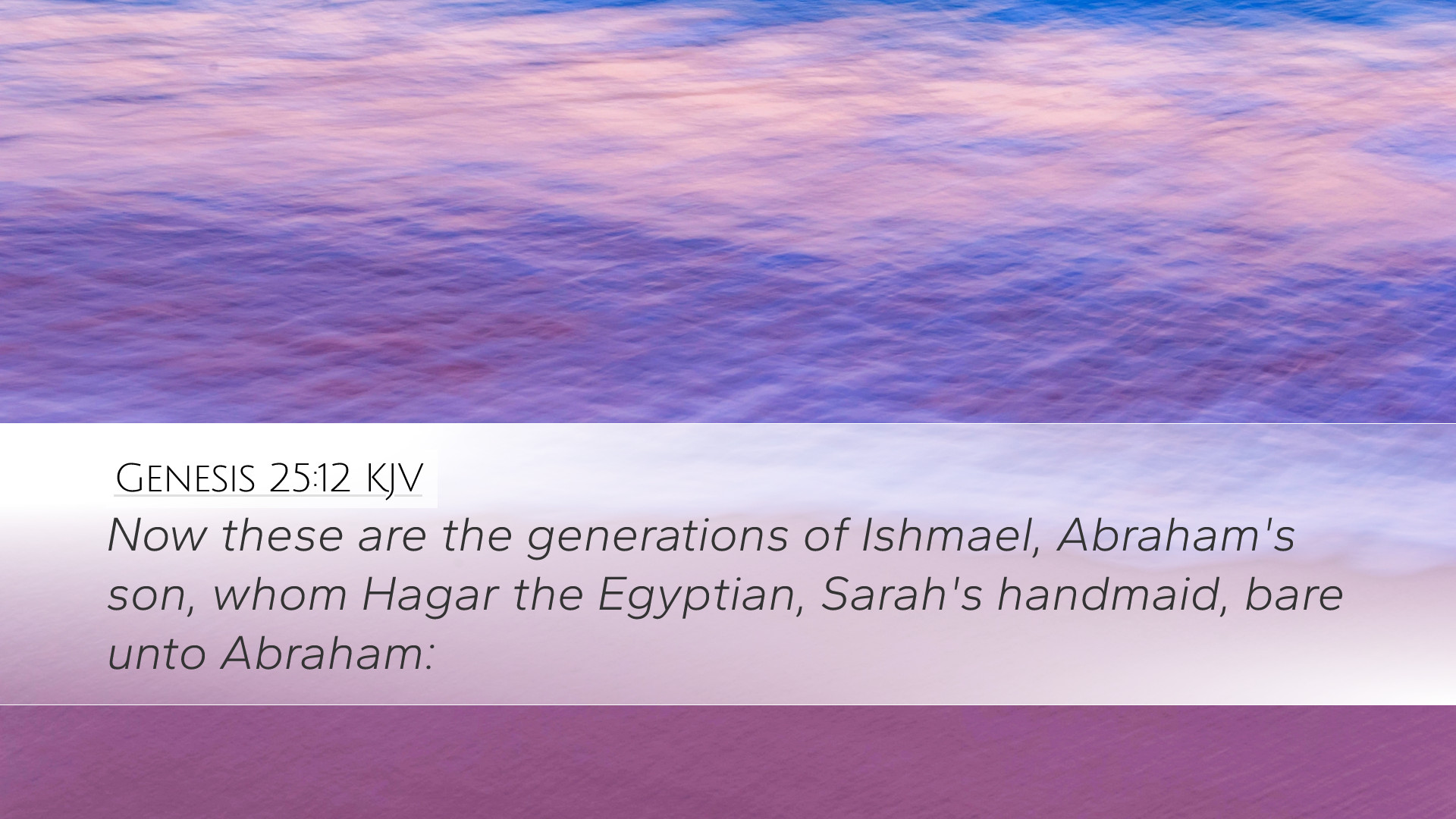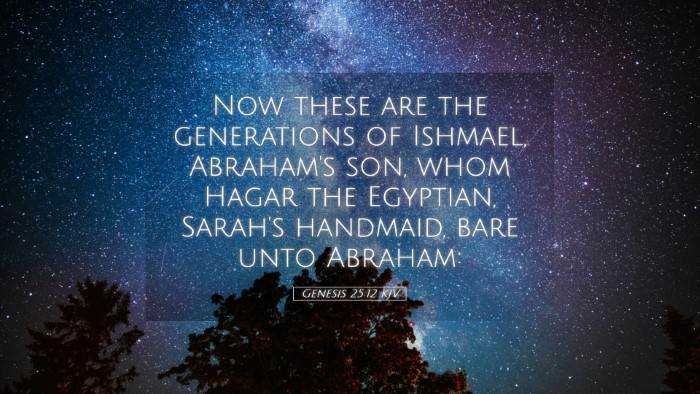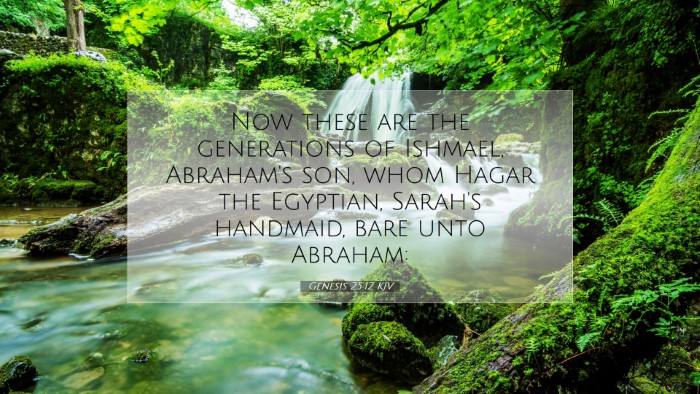Commentary on Genesis 25:12
Verse: Genesis 25:12 - "Now these are the generations of Ishmael, Abraham's son, whom Hagar the Egyptian, Sarah's handmaid, bore unto Abraham."
Introduction
This verse serves as a transitional statement in the narrative of Genesis, marking a shift from the story of Isaac to the lineage of Ishmael, Abraham's first son. Acknowledging the generations of Ishmael is significant because it reflects on God's covenantal promises and the unfolding of His plan through Abraham’s descendants.
I. Contextual Background
To fully grasp the implications of Genesis 25:12, it's essential to examine the familial and cultural context in which Ishmael was born. The circumstances of his birth involve themes of faith, promise, and apparent failure, which are pivotal in understanding his role in biblical history.
A. Hagar's Role
Hagar, an Egyptian servant, was given to Abraham by Sarah to bear children when Sarah was barren. Commentary by Matthew Henry explains that this act, though culturally acceptable, was a deviation from God's original plan for Abraham to have a child through Sarah. This deviation resulted in complications that echoed through generations.
B. The Importance of Naming
The designation of Ishmael as Abraham's son signifies the importance of naming in Hebrew culture. Albert Barnes notes that the name "Ishmael" means "God hears," which underscores God's awareness of Hagar's plight and His providential care not only for Ishmael but also for Abraham's family.
II. The Generational Aspects
In this passage, the phrase "these are the generations" emphasizes the importance of lineage and inheritance in biblical narrative. Ishmael’s lineage is often overshadowed by Isaac’s, yet it carries its own weight and significance.
A. The Broader Context of Generations
Adam Clarke elaborates that the term "generations" refers not only to biological descendants but also to the identity and characteristics inherent in those descents. This verse foreshadows the future nations that would arise from Ishmael's lineage, as seen in both historical and modern contexts.
B. Divine Promises to Ishmael
God did not abandon Ishmael after Isaac’s birth; rather, He bestowed blessings upon him. The acknowledgment of Ishmael's descendants is a testament to God's promise to Abraham that He would make a great nation from him (Genesis 17:20), highlighting God's grace even amidst human shortcomings.
III. Themes of Faith and Doubt
This verse encapsulates the intertwining themes of human action versus divine promise. The birth of Ishmael can be viewed as a moment of doubt on Abraham and Sarah's part concerning God's timing and faithfulness.
A. Impacts of Human Decisions
Henry points out that the attempt to fulfill God's promise through Hagar is a common human failing; rather than waiting for God's intervention, those involved acted in haste. This serves as a cautionary lesson for believers to trust in God’s timing.
B. The Continuity of God’s Plan
Despite the missteps of Abraham and Sarah, God's purpose remained intact. Clarke argues that this episode reveals a critical aspect of God’s sovereignty: He works through human imperfections to bring about His divine plan. Ishmael’s eventual fate is intertwined with the redemptive history that God weaves through His people.
IV. Current Implications for Believers
As we study Genesis 25:12, the verse encourages pastors, students, and theologians to reflect on the ways that the biblical narrative interacts with our lives. The complex relationships and consequences depicted serve as a mirror for our faith journeys.
A. Embracing God’s Sovereignty
This passage invites believers to lean into God’s sovereignty, recognizing that His promises and plans can unfold even through our failures. The assurance that God hears our cries, much like Ishmael in the wilderness, brings comfort to those who struggle.
B. Understanding Our Heritage
Just as the generations of Ishmael are acknowledged, it is vital for believers to understand their own spiritual heritage. Albert Barnes highlights that the recognition of our lineage can deepen our appreciation for God’s work in our lives and throughout history.
Conclusion
Genesis 25:12 acts as an important reminder of the complexities of God's plan and human agency. The legacy of Ishmael challenges readers to confront their trust in God’s promises, encouraging a deeper understanding of how faith and doubt coalesce in the journey of life. As God continues to weave His narrative, may we respond with faith and patience, acknowledging His sovereign role in our generations.


